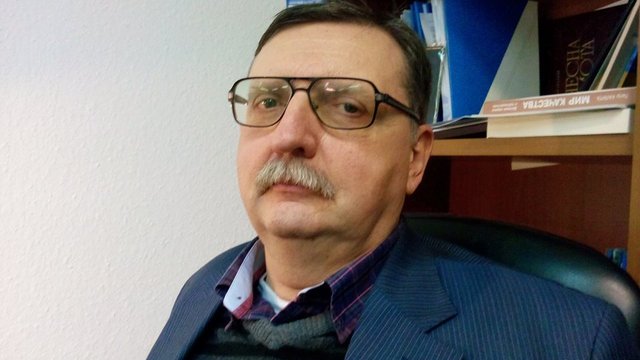Afterword

Ihor Burakovsky, Doctor of Economics, Chairman of the Board of the Institute for Economic Research and Policy Consulting, Professor of the Department of Economic Theory, National University of Kyiv-Mohyla Academy
Without a doubt, the main event of the past two weeks was the adoption of draft law No. 12414, which changed the status of NABU (National Anti-Corruption Bureau of Ukraine) and SAP (Specialized Anti-Corruption Prosecutor's Office), and the political turmoil around it. A lot has already been written and said on this topic. On July 31, the Verkhovna Rada of Ukraine actually returned the status quo. At the same time, in my opinion, the authorities and society should learn 10 very specific lessons from this situation.
1. The decision of the Verkhovna Rada of Ukraine concerned one of the most sensitive problems in Ukraine's relations with international partners – the problem of combating corruption in Ukraine. For our partners, this is the issues of democratic values that has a very specific economic dimension. And values are the basis of democratic governance. At the same time, talking today about the relevance of the problem of corruption for Ukraine is even somehow inconvenient.
2. Over the years, Ukraine has received significant amounts of international assistance in various formats to build a national anti-corruption system. At the same time, the decision on NABU-SAPO clearly showed that Ukraine can actually quite easily undermine long-term and successful efforts in this (and not only) area. In other words, a situation arises when we cannot either bring to its logical completion what we have started, or if we do not destroy what we have done already/ then simply roll back, actually leveling our previous own developments and assistance of our partners.
3. In general, I have a rhetorical question: is there any responsibility in Ukraine at all - at least moral and political - for the effective use of international aid. The completion of reform is not only the fulfillment of one's own obligations in the paradigm of "reform (change) for money". It is also the responsibility that the country, having received an initial political and financial impetus, continues to move along a certain path. And it will independently develop and finance the newly established institutions. In other words, aid cannot turn into a tool of a kind of pressure from the recipient to the donor – help us more, because there is not enough money for everything to finally be OK.
In general, the issues of the relationship between politics and economics in the context of international financial and technical assistance in the broad sense of the word are actively discussed in the world today. But in Ukraine, such a discussion is virtually absent.
Well, in a more practical way, I always had a question: how many goods and services did Ukraine receive through various channels of international aid and where are they now?
4. To make anti-corruption (and not only) institutions to really work, time is necessary to form and make them fully operational plus these institutions needs continuos protection from various kinds of outside political and other influences. In fact, we are talking about a kind of protection of anti-corruption bodies from attempts to establish "political patronage" over them. At the same time, anti-corruption bodies alone cannot eradicate corruption "with fire and sword". The system must work. So, in my opinion, suspects in corrupt acts cannot easily leave the country. At the same time, such a "collective game" is not only about coordination of actions among the relevant bodies, but also about the clear and unconditional responsibility of each governmental body for its "anti-corruption contribution".
5. In general, as of today, many structures have an independent status of various grades. For example, the National Energy and Utilities Regulatory Commission (in terms of independence in decision-making). In my opinion, the independent status of certain institutions today needs legal clarification in order to avoid legal uncertainty in terms of their powers. But qualified lawyers should have their say here.
6. In general, the current situation took place against the backdrop of a very dangerous trend – non-fulfillment of agreements (benchmarks) with international financial institutions in early 2025. As the experts of the RRR4U Consortium recently noted, there is a systemic slowdown in reforms, which has already cost Ukraine the loss of part of its external funding.
Next is a simple question. Will Ukraine take into account these lessons, and if it does, how, these lessons will be transformed into actions&
7. By the way, the official fulfillment of the conditions for providing EU assistance under the Ukraine Facility program is not formally related to negotiations on EU membership. But the Program provides, in particular, technical assistance to Ukraine in the field of harmonization of legislation with the EU, structural reforms, without which it is impossible to compete effectively in the EU market. We don't need it? Well, it is clear that internal political problems are a very specific signal for our partners.
8. Draft law No. 12414 created a difficult situation for politicians who, by virtue of party solidarity or some agreements, supported the relevant decision, although "somewhere in the depths of their souls" they did not agree with it. Well, government officials who work daily with international partners had to patriotically defend the draft law No. 12414. In my opinion, we do not have many good, highly qualified professionals in power to do "political split".
9. In my opinion, the current highly centralized decision-making system has a number of drawbacks. In many cases, it lacks necessary feedback. And establishing such a two way communucation during the war is the art and responsibility of the authorities.
10. And finally. The situation around the adoption of the draft law No. 12414 has become another evidence of political problems that are accumulating within the authorities and society. And a full-scale political crisis during the war is a real threat of nation's control levers slipping out of reach entirely with all subsequent consequences.
